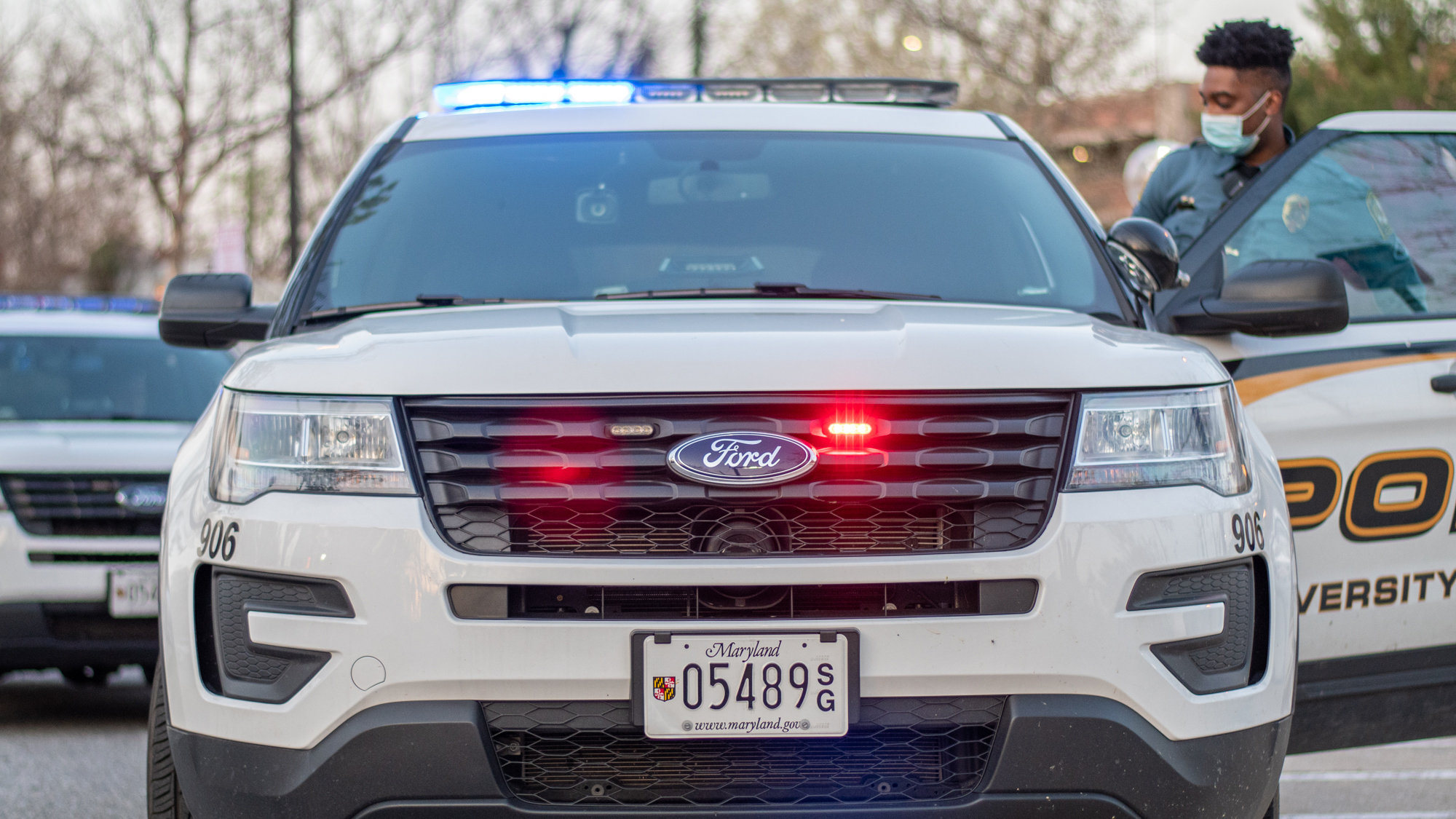One year into its Lights On! initiative, University of Maryland Police has issued 201 vouchers to fund repairs for drivers with broken car lights, according to data obtained by The Diamondback.
Lights On! enables officers to issue $250 repair vouchers — instead of tickets — to drivers who are pulled over for broken headlights, taillights, brake lights or turn signals. UMPD became the first law enforcement agency in Maryland to implement the Minneapolis-based Lights On! program, which arose as a response to the 2016 shooting death of motorist Philando Castile by a Minnesota police officer.
[Key takeaways from UMD’s salaries report]
UMPD Chief David Mitchell said Lights On! is an opportunity for the community to see officers in a supportive light. Altogether, drivers have saved $3,400 in repair costs in 2023 alone.
“One of the most common contacts we have with the public is through a traffic stop,” Mitchell said. “And needless to say, there’s a lot of concern about the police and the community throughout the country — and has been for quite some time now, tragically.”
Drivers are responsible for the cost of any repairs to broken car lights that exceed the $250 voucher. According to the data obtained by The Diamondback, 73 of the 74 Lights On! repairs completed so far in 2023 cost less than $250. The average price of a repair was $45.95.
The number of vouchers UMPD has distributed compares favorably with participating law enforcement agencies in much larger cities, said Don Samuels, CEO of Lights On’s! parent nonprofit, Microgrants.
“That’s a very strong performance,” Samuels said. “That would be a reflection of an enthusiastic chief and a very engaged police department.”
Drivers have 15 days to redeem a Lights On! voucher at a participating auto service provider. University Gas 2 Go on Route 1 is currently the only auto shop in College Park that accepts the vouchers.
Prior to enrolling in Lights On!, UMPD required motorists to remedy broken lights — at their own expense — within 30 days of receiving a service equipment repair order during a traffic stop, according to Mitchell. From 2016 to 2019, University Police issued an average of 478 SEROs per year for defects to equipment such as lights, brakes or tires. Black drivers received 1.5 times as many SEROs as white drivers.
“If someone can’t afford a vehicle repair, a citation for an equipment violation is not going to do anything to accomplish the end goal of driver and street safety,” said Mary Mergler, senior campaign strategist at the Fines and Fees Justice Center, which advocates for an end to payment-related driving restrictions. “When they get that citation, not only can they not pay the ticket, they aren’t able to afford the vehicle repair either.”
While data for repairs completed in 2022 was not available, according to Lights On!, Peter Chong, owner of University Gas 2 Go, estimated that 90 percent of Lights On! repair requests he has received since UMPD implemented the program have been fully covered by the cost of the $250 voucher. Many of the repairs require no more than 10 to 15 minutes, Chong said.
Due to high demand, University Gas 2 Go has reserved Saturdays just for customers with Lights On! vouchers, according to Chong.
“We’re not looking to make a whole lot of money out of doing this,” Chong said. “We’re always looking for something that we can do for the community, and I thought this was a perfect place to start.”
[Indecent exposure reports have nearly tripled in College Park this year]
Takoma Park Police and Cheverly Police have joined UMPD as the only law enforcement agencies in Maryland to implement Lights On!. On March 9,. Mitchell testified before the Maryland House of Delegates environment and transportation committee in support of HB1029, a bill that would have funded a statewide expansion of the program. The bill did not make it out of its initial committee phase.
Though an immediate expansion of Lights On! appears in doubt, Mitchell expects the program to remain at this university.
“We plan to continue Lights On! here … When I am with my colleagues — other chiefs of police — we talk about the state of police-community relations across the country and here in the state of Maryland, and what ways are there that we can help change that,” Mitchell said. “Well, this is one of those ways.”



